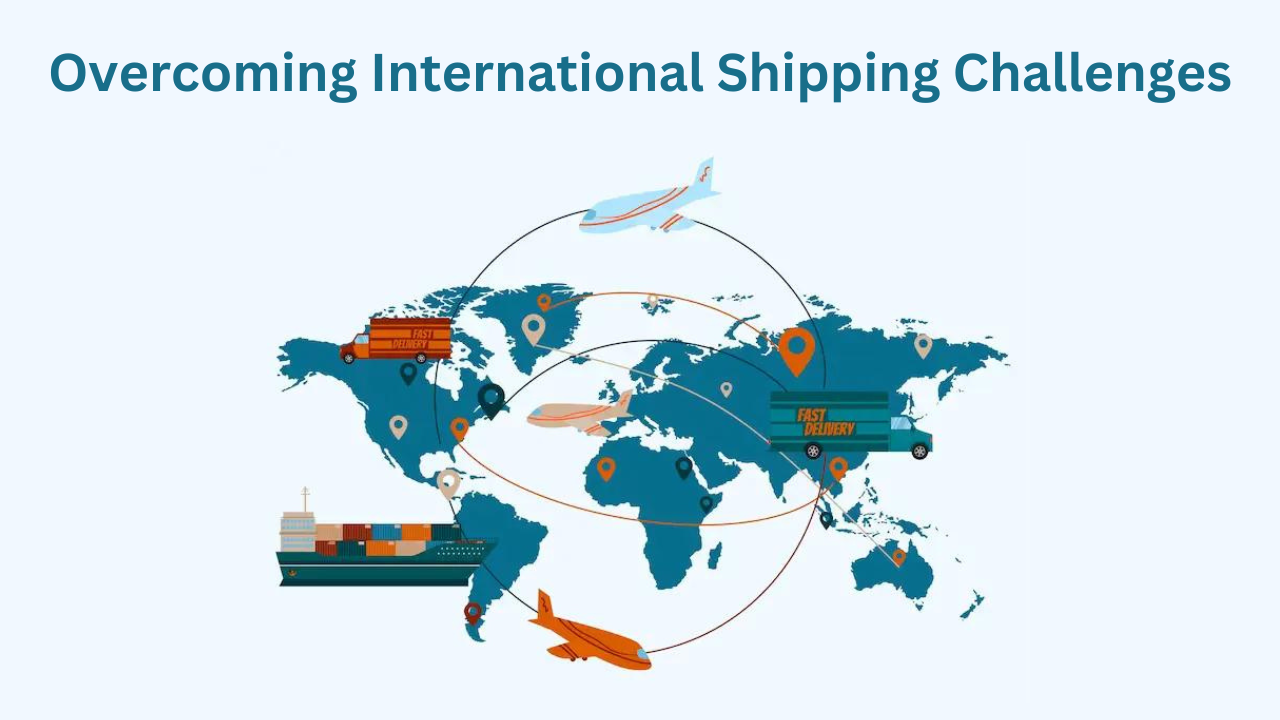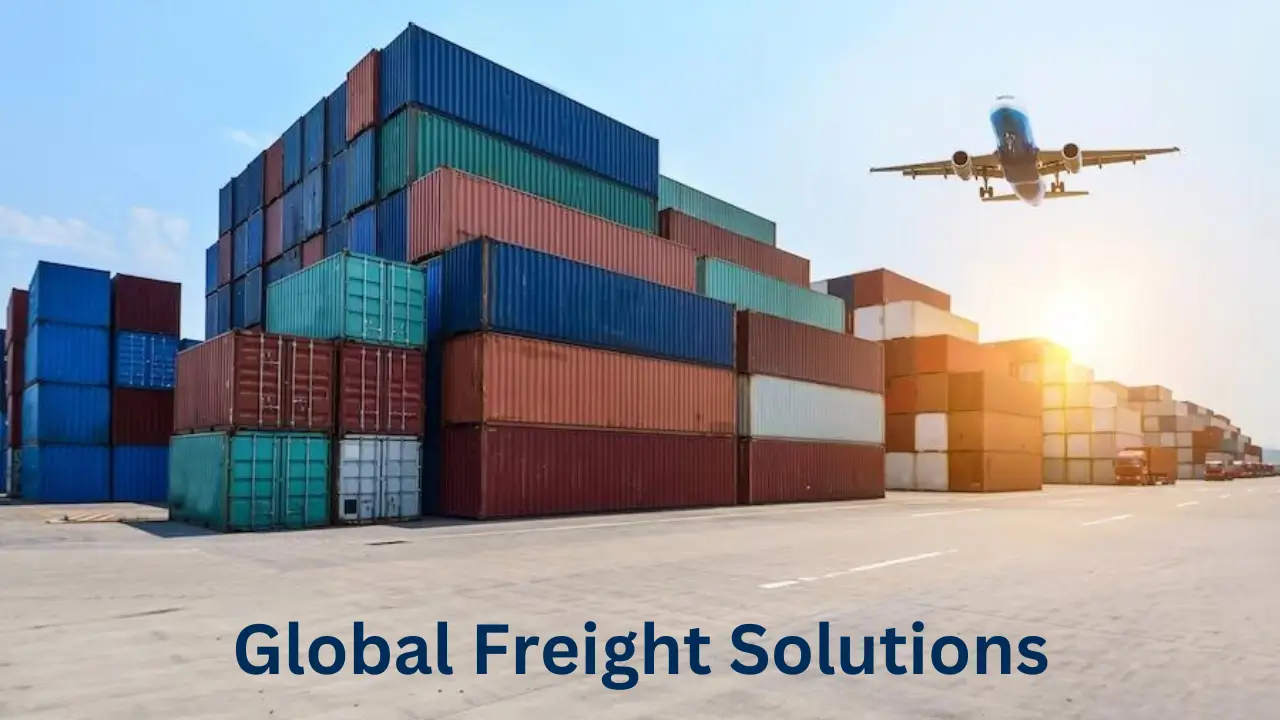
Challenges in International Shipping and How to Overcome Them
In our interconnected world, international freight shipping plays a pivotal role in facilitating global trade and commerce. From consumer goods to raw materials, the movement of cargo across borders keeps economies running and sustains businesses worldwide. However, with the vast expanse of the high seas, there come challenges that can test even the most experienced players in the industry. In this blog, we will explore the key challenges faced by international freight shipping from Mumbai and delve into effective strategies to overcome them.
Complex Regulatory Landscape
One of the foremost challenges in international freight shipping is dealing with the intricate web of regulations set forth by different countries and governing bodies. Each nation has its own customs procedures, import/export requirements, and safety standards. Complying with these diverse and ever-changing regulations can be a daunting task, leading to delays, fines, and added costs.
Overcoming Strategy: To tackle this challenge, shippers must invest in robust logistics and compliance management systems. Staying informed about the latest regulations, hiring customs experts, or using the services of experienced customs brokers, and maintaining accurate documentation are crucial steps in navigating the complex regulatory landscape.
Infrastructure and Connectivity
The efficiency of international freight shipping heavily relies on the infrastructure and connectivity between ports and shipping routes. Inadequate infrastructure can cause bottlenecks and delays in cargo handling, leading to increased transit times and higher operational costs. Moreover, limited connectivity to certain regions or countries can further exacerbate the challenges of reaching remote or underserved markets.
Overcoming Strategy: Collaboration between public and private entities to invest in port infrastructure improvements is vital. Governments should incentivize investments in modernizing ports and establishing better transportation links. Additionally, shipping companies can optimize their routes by leveraging advanced technologies and data analytics to identify the most efficient pathways.
Security and Piracy
The vastness of the open seas leaves international freight shipping vulnerable to security threats and piracy. These risks pose a significant challenge to the safety of crews and cargo. Pirates often target ships carrying valuable goods, disrupting supply chains, and causing financial losses.
Overcoming Strategy: Enhancing security measures onboard and investing in advanced technologies like GPS tracking, surveillance cameras, and encrypted communication systems can deter piracy attempts. Collaborating with international organizations and navies to patrol piracy-prone areas can also improve the overall security of maritime trade routes.
Environmental Impact
The shipping industry contributes to a considerable portion of global greenhouse gas emissions and pollution. The environmental impact of international freight shipping is a growing concern for consumers, regulators, and industry stakeholders alike. Reducing carbon emissions and adopting more sustainable practices have become imperative for the industry’s long-term viability.
Overcoming Strategy: To address environmental challenges, the freight shipping industry should gradually transition towards alternative fuels and cleaner technologies. Incorporating energy-efficient designs, adopting slow-steaming practices, and exploring renewable energy sources can significantly reduce the industry’s carbon footprint. Moreover, governments can incentivize eco-friendly practices and impose stricter environmental regulations to drive positive change.
Volatility in Fuel Prices
The volatility in fuel prices is a constant challenge for international freight shipping companies. Fluctuating oil prices can significantly impact operational costs, making it difficult to predict and manage budgets effectively.
Overcoming Strategy: To mitigate the effects of fuel price fluctuations, shipping companies can adopt fuel hedging strategies to secure fixed fuel prices for a certain period. Investing in energy-efficient vessels and exploring alternative fuel sources, as mentioned earlier, can also help reduce reliance on traditional fossil fuels.
Containerization and Cargo Handling
Containerization revolutionized international freight shipping, but it also brought challenges related to cargo handling. Improper loading, inadequate securing of containers, and insufficient handling facilities can lead to cargo damage or loss.
Overcoming Strategy: Investing in modern container handling equipment and training personnel in proper cargo handling techniques can improve efficiency and reduce the risk of cargo damage. Additionally, using container tracking systems can enhance visibility and enable real-time monitoring of cargo movements.
Currency Fluctuations and Payment Risks
Fluctuations in currency exchange rates can affect shipping costs and payment transactions, leading to financial uncertainty for both shippers and customers.
Overcoming Strategy: Shippers can consider using currency hedging tools to manage currency risks. Negotiating payment terms and using secure payment methods, such as letters of credit, can provide more financial stability in international transactions.
Documentation and Communication Challenges
The vast amount of paperwork involved in international freight shipping, including bills of lading, customs declarations, and certificates, can lead to delays and errors in documentation.
Overcoming Strategy: Implementing digital documentation and communication systems can streamline processes, reduce paperwork errors, and facilitate faster information exchange between stakeholders.
Labor and Crewing Issues
The freight shipping industry faces challenges related to labor shortages, crew retention, and compliance with international labor standards.
Overcoming Strategy: Prioritizing crew welfare, offering competitive compensation packages, and adhering to international labor regulations can attract and retain skilled seafarers. Additionally, investing in crew training and development can enhance operational efficiency and safety.
Political and Geopolitical Risks
International freight shipping can be impacted by political instability, trade disputes, and changes in government policies, leading to disruptions in shipping routes and delays in cargo movements.
Overcoming Strategy: Diversifying shipping routes and staying updated on geopolitical developments can help mitigate risks. Engaging in dialogue with governments and industry associations can also influence policy decisions that affect the shipping sector.
Technological Advancements and Automation
While technology offers numerous benefits to the freight shipping industry, integrating new technologies and automation can present challenges related to upfront costs, staff training, and data security.
Overcoming Strategy: Adopting a phased approach to technology implementation can help manage costs and provide time for employees to adapt to new systems. Prioritizing cybersecurity measures is essential to protect sensitive data from cyber threats.
Conclusion
International freight shipping is undoubtedly an essential pillar of the global economy, but it comes with its share of challenges. The complexities of regulations, infrastructure limitations, security threats, environmental concerns, and fuel price volatility all demand strategic planning and innovative solutions. By embracing technology, sustainable practices, and international cooperation, the freight shipping industry can overcome these challenges and continue to thrive in the ever-evolving landscape of international trade from Mumbai.


